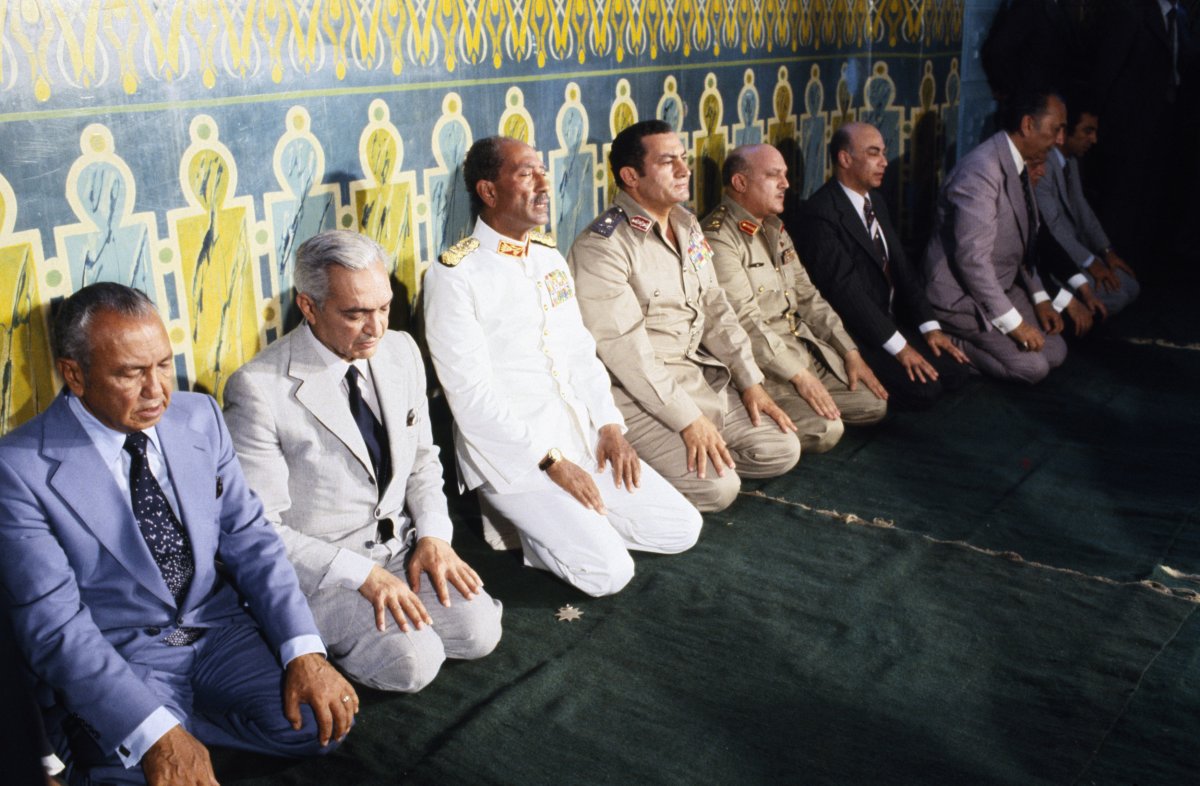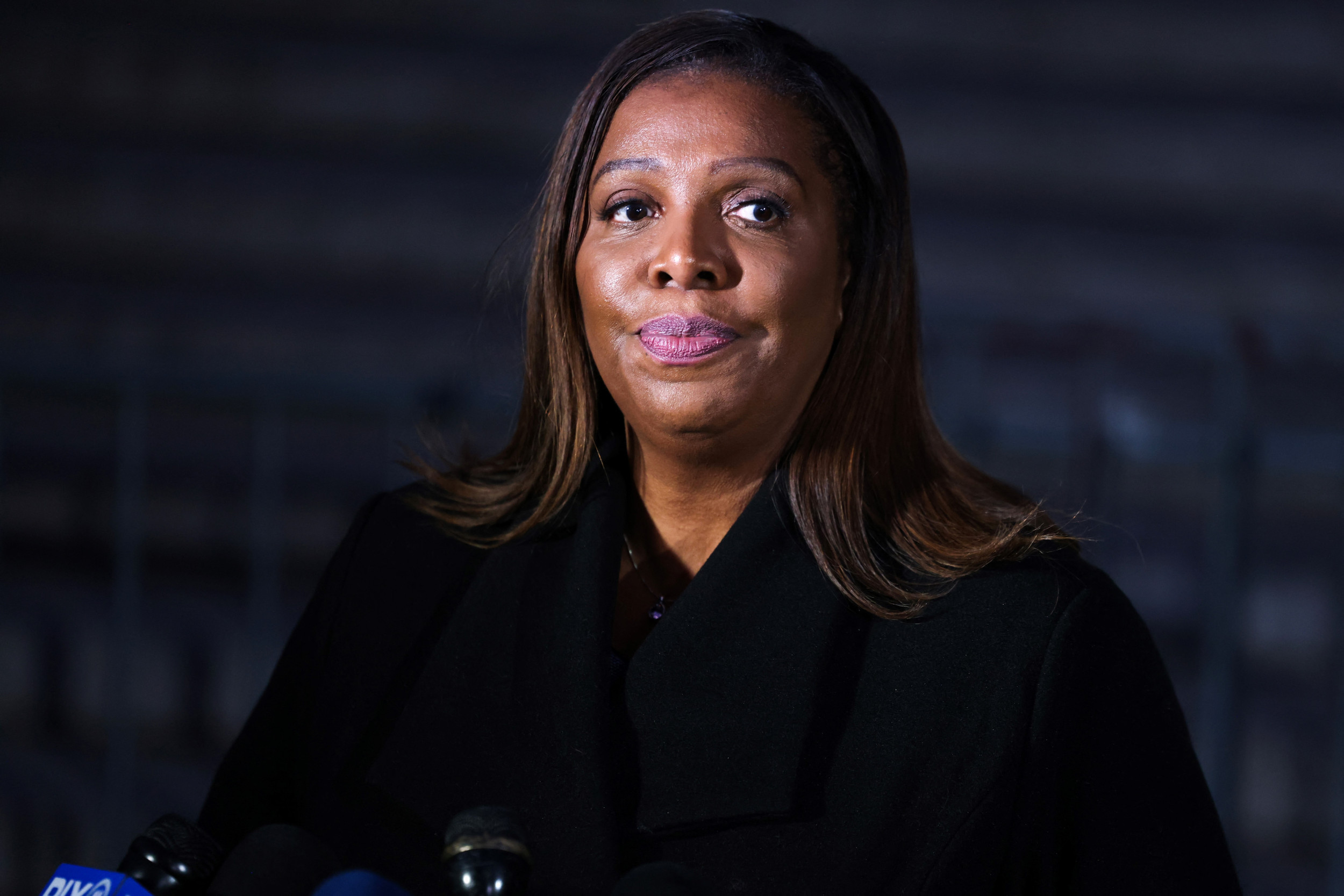One of my oldest childhood memories is from the day I learned how to color the Egyptian flag. It started out like any other school day in Cairo, until my kindergarten teacher told us that it was a very special day for Egypt: It was the first anniversary of Sinai Liberation Day, which marked the end of the war with Israel and the restoration of Egyptian sovereignty over the Sinai.
The teacher went on to explain how Egypt fought a war militarily and diplomatically to reclaim its occupied lands and establish a sustainable peace. I remember coloring the flag on a paper sheet, cutting it, attaching it to a plastic straw, and waving it out of the rear window of my father's car on the way back home. I remember returning to a television and watching footage of late President Hosni Mubarak raising the Egyptian flag over the Sinai town of Taba.
In the ensuing years of my childhood, I learned about the history of my family—the experiences of my father, my late grandfather, and my uncle in the many wars Egypt fought against Israel. My grandfather, an infantry officer, fought in 1956, 1967, and 1973. My uncle, a fighter pilot, fought in 1967 and 1973. Both men rarely spoke about the wars and would only nod or smile whenever anyone brought up their war stories. Once, when my cousin asked for an expensive belt, my uncle joked that he had ejected from planes twice during those wars, yet he still had his military issue webbed belt.
My father did share stories about 1973, when he was a first-year officer cadet in the police academy and the cadets were called upon to provide support on the home front. He told me about my grandfather making his way back to Cairo in 1967 in combat fatigues covered in dust, saying nothing, giving my father and his siblings military-supply biscuits once he arrived home. My father also told me about the jubilant street scene celebrating my grandfather's safe return to Cairo in 1973 after the second ceasefire.
But the overall feeling I got from the three soldiers in my family was always the same: "We fought the good fight, and now we have different priorities in life to focus on."

Those priorities were brought into stark relief for me in college. I wanted to study engineering and specialize in aeronautical and space engineering. I dreamed of getting a commercial pilot license to become a test pilot. But during my first week in college, the Sept. 11 attacks happened. I found out while scrolling through satellite TV channels after lunch looking for cartoons, only to stumble upon CNN broadcasting live coverage of the attacks. I remember breaking the number one sacred rule in our household: "Never wake up your father from his afternoon nap." I went straight to his bedroom to wake him up to watch the news.
My father, a U.S.-trained firefighter, led a specialized unit at the time. We watched in disbelief as the second plane hit the South Tower. I remember my father saying just one sentence: "This changes everything."
Soon we learned that the leader of the cell that carried out the attacks, Muhammad Atta, was an Egyptian engineer. I decided to switch from aeronautical engineering to telecommunications engineering, fearing that no one would hire Egyptians in the aerospace industry after the attacks. I set out to understand everything about terrorism, about the people who made me abandon my first professional dream, who wrought so much devastation on the U.S.
Unfortunately, understanding terrorism—and how distant it is from the kind of noble fighting my family engaged in to free Egypt from occupation—is all too relevant these days.
The Middle East has been in turmoil for over a century; conflicts, wars, terror attacks, invasions, occupations, uprisings, revolutions. Not a day goes by without news of death and destruction. Yet during the last decade, one entity emerged as the most destabilizing force across the region: the Islamic Republic of Iran (IRI) and its Islamic Revolution Guard Corps (IRGC). Through the deployment of terrorism and proxy warfare as tools of statecraft, the IRI and its IRGC have destabilized Lebanon, Iraq, Syria, and Yemen.
This all culminated on Oct. 7, when the Islamic Resistance Movement, Hamas, along with Palestinian Islamic Jihad (PIJ) launched a terrorist attack against Israel out of the Gaza Strip, killing more than a thousand innocent civilians and taking more than 200 hostages back to Gaza. In response, Israel declared war against Hamas, with the objective of fully demilitarizing the Gaza Strip and liberating the hostages. And around the world, pan-Islamist organizations mobilized large demonstrations to exert political pressure on Israel and erode public support for its right to defend itself.
Massive disinformation campaigns have been launched on social media platforms, exhibiting the hallmarks of structured communication campaigns and fielding clever soundbites and reductionist talking points to achieve the same goal.
These talking points are not about defending the Palestinian right to self-determination. They have descended into an outright defense of Hamas, including rampant justifications of the atrocities of Oct. 7.
As someone whose family fought Israel valiantly on the battlefield, this cannot stand.
It is not a defense of Palestinian rights to justify atrocities, even those committed in their name.
It is time for all stakeholders to shoulder their historical responsibility to reclaim control of the Palestinian cause. It is time for governments and international organizations to call out the IRGC campaign of hybrid and proxy warfare and expose its political and financial links.
It is time we all stood up for peace and against terrorism. It is time to put an end to turmoil in the Middle East: the tragic headlines, the terrorist attacks, the wars, the funerals, the flag-draped coffins, the hatred and the disinformation. If there is one silver lining in all of this, it is the prospect of peace—a meaningful, sustainable peace that puts an end to all the hatred and suffering.
I saw it in my childhood, and I know I can see it again today.
For all the powers that be: Set my region free!
M. A. Al-Asqalani is an independent national security and open source intelligence analyst based in Cairo, Egypt.
The views expressed in this article are the writer's own.
Uncommon Knowledge
Newsweek is committed to challenging conventional wisdom and finding connections in the search for common ground.
Newsweek is committed to challenging conventional wisdom and finding connections in the search for common ground.
About the writer
To read how Newsweek uses AI as a newsroom tool, Click here.








